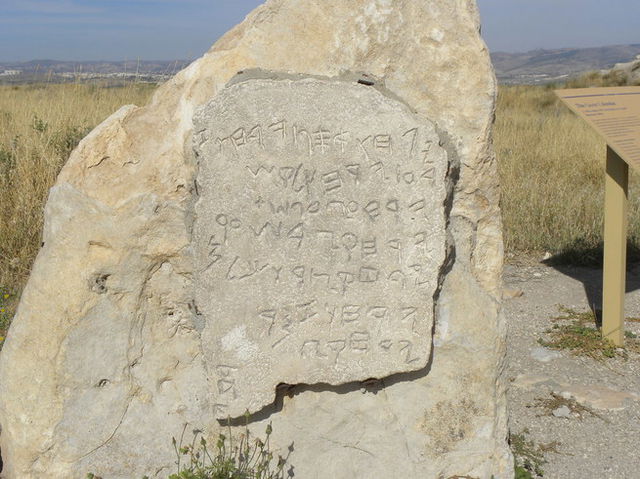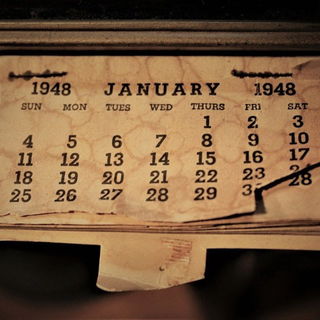The Jewish Calendar, also known as Hebrew Calendar, is used by people of the Jewish faith to establish the dates for religious observances, holidays, Torah readings, yahrzeits (funerals), and birthdays.
This is the official calendar in Israel, alongside the Gregorian calendar, which is used for civil holidays and agricultural purposes.
The Jewish calendar is a lunisolar calendar (it follows the Moon phases and the time of the solar year) and has 12 months with 29 or 30 days each.
Here are some examples of dates in the Gregorian calendar, and how they relate to the Jewish year:
- Sun, 1 January 2023 = 8th of Tevet, 5783
- Mon, 1 January 2024 = 20th of Tevet, 5784
- Wed, 1 January 2025 = 1st of Tevet, 5785
- Thu, 1 January 2026 = 12th of Tevet, 5786
- Fri, 1 January 2027 = 22nd of Tevet, 5787
The Origins of the Jewish Calendar

The Jewish calendar counts the time from the year 3761 B.C., the date for the creation of the World and the Universe, according to the bible.
The exact origins of the Jewish calendar are difficult to trace, although it is believed that the Babylonian system inspired it.
It is known that from the 1st century B.C. until 70 B.C. the calendar months were determined by observation. After two reliable witnesses would notify the council, the Sanhedrin, that they had observed the first sliver of the new moon, the Sanhedrin would then proclaim the beginning of the new month.
In 359 CE, Hillel II, a Palestinian patriarch, officially established what we now know as the Jewish calendar, based on astronomical calculations. This standardized the length of the months and set the rule for the Leap Year 19-year cycle.
Years in the Jewish Calendar
The Jewish calendar counts time based on three astronomical events:
-
the rotation of the Earth about itself (a day);
- the orbit of the Moon around the Earth (a month);
- the orbit of the Earth around the Sun (a year);
Even though there is no correlation between these three events, the Jewish calendar coordinates its dates according to these astronomical phenomena. So, months are either 29 or 30 days, according to the lunar cycle which has 29.5 days. Years in the Jewish calendar are 12 or 13 months, to correspond with the 12.4-month solar cycle.
Because of this, a year in the Jewish calendar is 11 days shorter than a solar year. To keep in sync with the astronomical seasons, every 2 to 3 years, or 7 times in each 19-year cycle, one leap month is added, making that year 13 months long. This also ensures that Jewish religious observances happen at the correct time.
Months in the Jewish Calendar
The months in the Jewish calendar are based on the moon phases. Each month begins during the crescent moon when the first sliver of the moon is visible after the dark New Moon.
Here are the months in the Jewish calendar with their corresponding months in the Gregorian calendar:
| Jewish Calendar | Gregorian Calendar |
|---|---|
| Nissan (30 days) | March - April |
| Ivar (29 days) | April-May |
| Sivan (30 days) | May-June |
| Tammuz (29 days) | June-July |
| Av (30 days) | July-August |
| Elul (29 days) | August-September |
| Tishrei (30 days) | September-October |
| Kheshvan (29 or 30 days) | October-November |
| Kislev (29 or 30 days) | November-December |
| Tevet (29 days) | December-January |
| Shevat (30 days) | January-February |
| Adar (29 days or 30 days on a leap year) | February-March |
| Adar II (added during leap years, with 29 days) |
Days of the Week in the Jewish Calendar
Apart from the Shabbat, the different days of the week in the Jewish calendar are known as first day, second day, third day, and so on.
| Jewish Week | Gregorian Week |
|---|---|
| Yom Rishon | First Day (Sunday) |
| Yom Sheini | Second Day (Monday) |
| Yom Shlishi | Third Day (Tuesday) |
| Yom R'vii | Fourth Day (Wednesday) |
| Yom Chamishi | Fifth Day (Thursday) |
| Yom Shishi | Sixth Day (Friday) |
| Yom Shabbat | Sabbath Day (Saturday) |
The Shabbat is a holy day in the Jewish faith, and it is the day of rest for Jewish people.
Facts About the Jewish Calendar
- God's first commandment to Moses before the Exodus from Egypt concerned the Jewish calendar. This commandment established that Nissan should be the first month of the Jewish year, and set in motion the creation of the calendar.
- The Jewish new year, Rosh Hashanah is celebrated during September, on the first day of Tishrei.
- Each week of the year in the Jewish calendar has its own unique name.
Learn More about other World Calendars:











